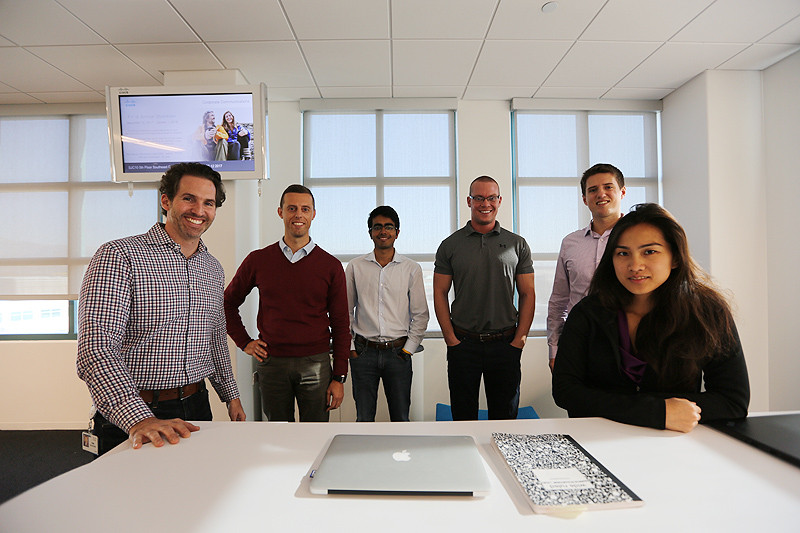Cisco isn't only the worldwide leader in IT and networking. It also happens to be one of the most unique strategic investors in the startup world.
Starting in 1993, Cisco Investments has actively scoured the globe to invest in emerging technologies and innovative companies likely to shape the technology landscape. Some of those investments have later turned into Cisco acquisitions while others went onto thrive independently. Today, Cisco boasts a current portfolio of more than 120 active investments in promising startups, entrepreneurs, and limited partner positions in more than 40 venture funds. Here's more color on what arguably ranks as one of the technology industry's biggest secrets.
Unique investment thesis
Cisco Investments has been a consistent investor in technology startups with a history that goes back more than two decades, through good markets and bad. The organization invests approximately $200 million each year into as many as 30 startups. The spectrum ranges from early stage seed stage investments of a few hundred thousand dollars to tens of millions, such as when it put money into VMware prior to that company's IPO.
Cisco Investments
• 120 active portfolio companies
• Limited partnership in 40+ VC funds
• Invests $150-200M/year in startups
The mandate is broad and extends beyond Cisco's current businesses to nascent industry segments where the company has no presence. For example, Cisco recently invested in the drone field, a space that's far removed from any of its core businesses. But this is part of a strategy that rests upon taking the long-view.
"It puts us in a great position to see not just what's relevant today but also where the future is heading," said Rob Salvagno, Cisco's Vice President of Corporate Development.
While Salvagno's team concentrates its efforts on opportunities touching the company's core businesses, it also maintains a wide-enough lense to focus on a myriad of next horizon opportunities. For Salvagno, the foundation supporting all the company's investment activity is to, "invest in areas that will make us strategically smarter in areas that matter to Cisco today or could shape Cisco tomorrow."
A different approach to venture investing
You might describe Cisco Investments as the company's very own venture capital firm - but with a couple of major differences. Unlike your conventional VC firms, Cisco Investments' primary goal is strategic, and works as a complimentary partner to a VC. Financial considerations, while important, play a secondary role.
Another major difference: Cisco Investments' portfolio companies enjoy access to rich resources that no Sand Hill organization can replicate. In practice, that means they can reach into Cisco's ranks to tap a reservoir of technical talent and advice. They also have access to a matrix of Cisco customers and partners.
"The fact that we have a team that has this combination of all these different prior experiences - we have engineers, entrepreneurs, bankers, venture capitalists, consultants - all together with this unique capacity to invest and acquire makes us really special."
Rob Salvagno, Vice President of Corporate Development
"We're a big company with relationship managers in place for each of our portfolio companies so they can connect to the right customers, business units and partners," notes Hitesh Saijpal, the head of Cisco Investments Portfolio Development. "Some of the most robust channel partner ecosystems in the world are at their disposal as well as access to the world's foremost tech salesforce."
Cisco Investments obviously aims to make smart financial investments when it puts money into portfolio companies. But the primary motivation is strategic. So if that means no immediate returns, so be it. This is investing for the long term.
Cisco usually receives a board observer position at companies it invests in. That affords the same level of visibility as a board member. The difference between an observer and a board member? The former doesn't have voting rights, thus avoiding potential conflicts and fiduciary responsibilities. Nonetheless, a seat at the board gives Cisco a ground level view into its portfolio companies as well as a greater appreciation for the challenges and opportunities they face.
The strategic and financial success of Cisco's activities don't get driven by any single investment, according to Salvagno. The goal is to find investments that are strategically aligned with the various businesses inside of Cisco. When it comes to choosing investments more far afield, however, Cisco Investments takes the long view. The focus is on the companies that represent the best in class. Those are the startups that are more likely to become the standouts that wind up shaping their particular market segments.
Sometimes, however, a young company may not immediately want a strategic investor.
"That's why we try to make our investment value proposition known to companies well ahead of the time they're ready for fundraising," Salvagno said. "So, when having a strategic investor becomes relevant to them, we want them to think about Cisco as their partner."

Diverse profile
About one-third of Cisco Investments' 50-person team lives and works outside of the United States, offering the company a global lense on local tech developments around the world as well as a global investment capability. Team members each have their own particular areas of expertise in particular domains such as security, cloud or big data. It's also a diverse team - not just from a gender or ethnicity perspective, but also from an experience perspective.
Take someone like Janey Hoe, who started off as an engineer and became a product manager at Cisco. Today she's responsible for the team's data center and storage investments as well as being the senior leader for Greater China.
"Janey really understands what takes to build and sell products," Salvagno said.
He also pointed to Karthik Subramanian, who leads Cisco Investments' security practice.
"Karthik started out as an investment banker. He understands the financial side but also started his own company so he understands what it's like to be an entrepreneur."
"The fact that we have a team that has this combination of all these different prior experiences - we have engineers, entrepreneurs, bankers, venture capitalists, consultants - all together with this unique capacity to invest and acquire makes us really special, and enables us to make better strategic decisions for Cisco."
Startup DNA
Any tech company that wants to remain relevant needs to be on top of market transitions and nimble enough to innovate as market conditions change. It's also why Cisco Investments actively scours the globe to find and forge strong partnerships with startups developing cutting-edge technologies.
"Innovation takes place inside Cisco but it's also happening outside the company," Salvagno said. "And because it's happening outside the walls of Cisco, we have an opportunity to get visibility into multiple areas that might be outside of our core business."
It's also a potential springboard for future mergers and acquisitions. For instance, Cisco invested in OpenDNS in 2014 just as the market for cloud security began to emerge. Cisco already had a strong security business but saw a technology transition underway where OpenDNS was playing a leading role. A year later, Cisco acquired the company. Since then, the OpenDNS unit became the foundation of the cloud security business. Importantly, founder David Ulevitch now runs Cisco's entire multi-billion-dollar security business. So not only did that investment help drive a future acquisition but it also became the way for one of the industry's top entrepreneurs to infuse his DNA into Cisco.

Identifying next horizon opportunities
Finding a great match hinges on a lot more than happenstance at Cisco Investments.
The organization deploys dedicated teams to determine the best investment opportunities in various technology segments.
Each team is chartered with understanding everything within its particular bailiwick within Cisco. At the same time, they're also responsible for engaging with startups, partners and financial VCs - the objective being to cultivate a deep well of knowledge about what else is happening in their space.
Take the example of the Internet of Things. When Cisco started exploring IoT's potential earlier this decade, the company wasn't sure about the immediate opportunities it might offer its core businesses. But IoT represented an emerging market with huge potential. The question was where Cisco would participate. So it began investing - over 20 IoT-related startups in the first couple years - allowing Cisco to garner an invaluable store of knowledge. This knowledge helped contribute to the decision last year to acquire Jasper Technologies for $1.4 billion, a company that was not one of the businesses in Cisco's IoT portfolio. As Salvagno noted: "Cisco's knowledge of IoT from its other investments aided us in helping to recognize the uniqueness of Jasper."
More broadly, a potential next horizon opportunity comes in many forms. For example, Cisco is an investor in a startup that helps give enterprises visibility into what's happening around the dark web. Is that type of business representative of something that Cisco directly sells today? No, says Salvagno, but "as things in cybersecurity evolve, do we need to have visibility in terms of how you get intelligence about the dark web? The answer is yes."
Used with the permission of http://thenetwork.cisco.com/.

